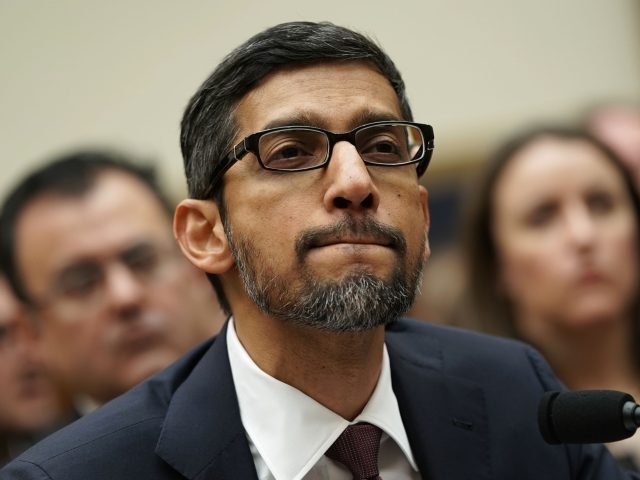Google CEO Sundar Pichai recently published an op-ed in the New York Times in which he stated that “privacy should not be a luxury good,” and describes his company as having “a profound commitment to responsibility and a healthy dose of humility.”
Google CEO Sundar Pichai recently took the opportunity to publish an op-ed in the New York Times in which he attempts to defend his company against accusations of privacy invasion. In the op-ed titled “Google’s Sundar Pichai: Privacy Should Not Be a Luxury Good,” Pichai claims that Google takes its privacy responsibilities very seriously and appreciates its users’ trust:
Google products are designed to be helpful. They take the friction out of daily life (for example, by showing you the fastest route home at the end of a long day) and give you back time to spend on things you actually want to do. We feel privileged that billions of people trust products like Search, Chrome, Maps and Android to help them every day.
It’s a trust we match with a profound commitment to responsibility and a healthy dose of humility. Many words have been written about privacy over the past year, including in these pages. I believe it’s one of the most important topics of our time.
Pichai further described how Google gives users control over their own data, promising that Google would never sell an individuals data:
To make privacy real, we give you clear, meaningful choices around your data. All while staying true to two unequivocal policies: that Google will never sell any personal information to third parties; and that you get to decide how your information is used. Here’s how it works:
First, data makes the products and services you use more helpful to you. It’s what enables the Google Assistant to book a rental car for your trip, Maps to tell you how to navigate home and Photos to share vacation pictures with a click of a button.
Second, products use anonymous data in aggregate to be more helpful to everyone. Traffic data in Google Maps reduces gridlock by offering people alternate routes. Queries in Google Translate make translations more accurate for billions of people. Anonymized searches over time help Search understand your questions, even if you misspell them.
Third, a small subset of data helps serve ads that are relevant and that provide the revenue that keeps Google products free and accessible. That revenue also sustains a broad community of content creators, which in turn helps keep content on the web free for everyone. The data used in ads could be based on, for example, something you searched for or an online store you browsed in the past. It does not include the personal data in apps such as Docs or Gmail. Still, if receiving a customized ads experience isn’t helpful, you can turn it off. The choice is yours and we try to make it simple.
Pichai finished the op-ed by stating that tech firms should actually embrace legislation and regulation from governments on privacy issues, praising the European Union for its recently introduced GDPR laws.
Europe raised the bar for privacy laws around the world when it enacted the General Data Protection Regulation
. We think the United States would benefit from adopting its own comprehensive privacy legislation and have urged Congress to pass a federal law. Ideally, privacy legislation would require all businesses to accept responsibility for the impact of their data processing
in a way that creates consistent and universal protections for individuals and society as a whole.
Legislation will help us work toward ensuring that privacy protections are available to more people around the world. But we’re not waiting for it. We have a responsibility to lead. And we’ll do so in the same spirit we always have, by offering products that make privacy a reality for everyone.
Google has a long history of violating its users’ privacy and has been criticized on numerous occasions for doing so. Popular anti-malware product manufacturer Malwarebytes published a blog post in March which outlines the issues with Silicon Valley Tech companies failing to disclose the full privacy implications of their products, highlighting a Google motion detector which included a microphone — something that was never disclosed to owners.
In March, Google was fined $1.7 billion by the European Union for the company’s third breach of E.U. antitrust laws in three years. The latest fine against the company relates to Google’s AdSense advertising service and “illegal practices in search advertising brokering to cement its dominant market position,” according to European Competition Commissioner Margrethe Vestager.
Breitbart News has reported extensively on Google’s multiple privacy violations.
Read the full op-ed in the New York Times here.
Lucas Nolan is a reporter for Breitbart News covering issues of free speech and online censorship. Follow him on Twitter @LucasNolan or email him at lnolan@breitbart.com

COMMENTS
Please let us know if you're having issues with commenting.